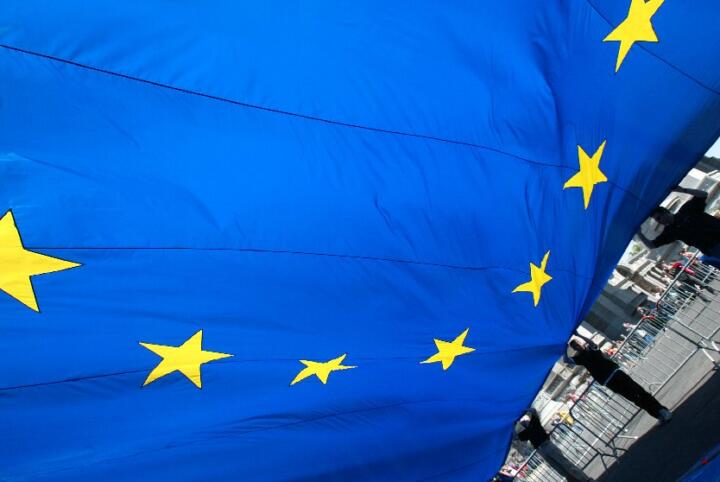The European Union has pledged €500,000 in humanitarian assistance to support internally displaced persons (IDPs) in Benue State, marking a significant boost to relief efforts amid escalating displacement and insecurity in the region.
The announcement comes amid worsening clashes between herders and farmers in parts of central Nigeria, driven largely by changing land use patterns, resource competition, and sporadic political unrest. Tens of thousands of residents have fled their homes in rural communities, often under extreme hardship. The EU’s funding is aimed at alleviating the most pressing needs in hard-hit areas, including shelter, healthcare, and food security.

The €500,000 package is expected to provide support in three key areas: emergency relief supplies, livelihoods recovery, and improved access to basic services. Local implementing partners, including international NGOs and community-based civil society organisations, will coordinate the distribution across identified IDP camps and host communities in zones such as Guma, Logo, and Gwer West.
Among its priorities, the EU funding will support temporary shelter provision through kits and materials for dislodged households. It will also deliver critical health interventions—such as vaccination drives, maternal and child care, and disease prevention in overcrowded camp settings. Additionally, food distributions will target vulnerable groups including women-headed households, the elderly, and unaccompanied minors.
Complementing aid delivery, the EU support includes a livelihoods window designed to help displaced families restore income-generating activities. This involves distributing small agricultural inputs—such as basic tools, seeds and planting materials—and small-business start-up grants. The initiative is partly intended to help IDPs transition from dependence on aid toward self-reliance.
Health authorities and humanitarian agencies in Benue have welcomed the EU’s commitment, calling it timely and substantive. According to one aid worker in Makurdi, the funding will “fill critical gaps in the early warning and response system,” particularly in underserved rural communities where access remains limited. Local medical facilities, many of them overstretched or damaged, are expected to receive essential supplies and support for outreach programs.
Benue State Government has also affirmed its support for the intervention. Officials say the initiative aligns with state-level efforts to promote peacebuilding and coordinate humanitarian response through its Emergency Management Agency (SEMA). The government has pledged land and logistical collaboration, offering security assurances and access clearance for aid teams. It also committed to complementing the relief effort with psycho‑social support for traumatized individuals.
EU diplomats outlined that the funding is part of a broader regional humanitarian strategy focused on the Lake Chad and North Central zones, where conflict-related displacement has surged in recent years. The €500,000 allocation is being provided under the EU’s Humanitarian Aid & Civil Protection (ECHO) framework, which prioritizes rapid deployment of support to populations facing extreme hardship.
This commitment builds on previous EU engagement in Benue and neighbouring regions, where earlier rounds of funding supported flood displacement, COVID‑19 emergency response, and vaccination campaigns. The renewed focus on conflict‑induced displacement reflects a shift in humanitarian needs and the evolving dynamics of inter‑communal tensions.
Civil society voices in Benue have lauded the partnership, calling for strong coordination and transparency in implementation. “We urge authorities to ensure beneficiaries are fully involved in program design and feedback,” stated a women’s rights group active in IDP settlements. They emphasized the importance of inclusive targeting and equitable delivery to minimize aid diversion and reinforce trust.
Community-based organisations are also being trained to monitor distribution, report grievances, and collect data on aid effectiveness. Such participatory mechanisms, insiders say, will help anchor accountability in the response, ensuring funds reach intended recipients and adapt to local challenges like delayed arrivals or supply shortages.
Despite the focus on emergency delivery, analysts warn the displacement crisis could deepen without structural interventions. Long-term solutions—especially around conflict prevention, land rights, and communal dialogue—must accompany humanitarian action to reduce future displacement risk. While the EU’s funding addresses immediate needs, experts say peacebuilding and governance reforms remain essential to unlock sustainable recovery.
As of the latest assessment, Benue hosts upwards of 120,000 internally displaced persons across camps and informal sites, with far greater numbers dispersed in host communities. Facilities are stretched, and gaps in sanitation, protection, and child welfare persist. The funding infusion may alleviate acute hardship, but humanitarian actors caution that compounding crises—seasonal flooding, public health outbreaks, and insecurity—could escalate needs in the coming months.
For now, the EU’s commitment is seen as a crucial lifeline. It arrives at a time when several international donors have reduced their footprint following global funding gaps. Humanitarian planners say the new allocation will allow critical supplies to reach remote areas before the rainy season hampers access.
Moving forward, implementation is expected to begin swiftly, with aid delivery committees already formed in coordination with SEMA and host community representatives. Baseline surveys and rapid needs assessments are underway to tailor interventions. Stakeholders anticipate that support packages may evolve based on real-time conditions, including replication of retail-focused vouchers or cash transfer schemes to enhance beneficiary flexibility.
Ultimately, while the humanitarian budget is finite, the EU’s €500,000 pledge signals renewed resolve to support displaced communities in Benue. Whether this aid translates into measurable impact will depend on coordination, local engagement, and the ability to tackle the root causes of displacement. Still, for thousands who have lost homes, livelihoods, and security, the funding brings a measure of relief—and a timely reminder that international solidarity is possible even in times of escalating crisis.
Support InfoStride News' Credible Journalism: Only credible journalism can guarantee a fair, accountable and transparent society, including democracy and government. It involves a lot of efforts and money. We need your support. Click here to Donate
